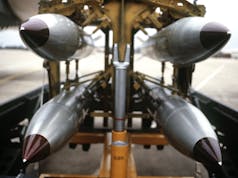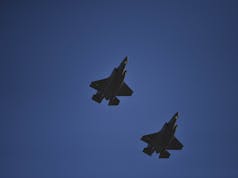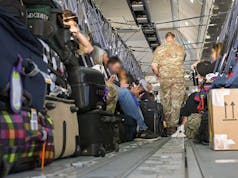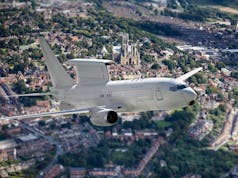Royal Air Force personnel stationed in Estonia have taken part in a significant air exercise alongside NATO Allies and aircraft from the Finnish Air Force.
RAF and German Air Force Typhoon fighters, based at Amari Air Base in Estonia, flew training missions with various aircraft from across the NATO Alliance and Finland.
For the exercise, the integrated Anglo-German detachment conducting the NATO Air Policing mission was joined at Amari by four Finnish Air Force F/A-18C Hornets. Furthermore, four F-35A from the Royal Netherlands Air Force, two Polish Air Force F-16s, two French Air and Space Force Rafales, two US Air Force F-15 Strike Eagles, and a German Air Force A400M carrying out Air-to-Air Refueling participated in the exercise.
The air exercise took place in Estonian and Latvian airspace, testing integrated air-to-air combat and air-to-ground target acquisition.
This event, say the RAF, marked the first time Finnish F/A-18s have flown from Amari Air Base since the Covid pandemic outbreak and followed the likely approval of their accession to NATO.
Currently, the RAF’s 140 Expeditionary Air Wing and the German Air Force’s Tactical Air Wing 71 ‘Richtofen’ are conducting combined NATO Air Policing from Amari Air Base.














The best news that I’ve heard about the RAF in months is that an engineer officer Air Marshal Sir Richard Knighton is set to be named as the next Chief of the Air Staff. He will replace ‘Wokery’ Wigston , doubtless with a brief to sort the Hawk engine problems out and re-start fast jet training
Expect the usual ‘he is not a fighter pilot’ wingeing from the senior ranks at Cranwell who have failed the RAF so badly over the past five years – as their expected career progression flies out the window
With him not having a background as a pilot, might he be more disposed to purchasing UAVs?… 🤔
Almost too much to hope for …. we need serious commitment to UAVs etc. (which I hope is going on behind the scenes) if we are to avoid a rude awakening.
I’m hoping the apparent delay is due to them waiting for a mature product rather than splurging on something not sufficiently up to the job or something that is obsolete before it’s even been delivered.
The RAF seem to have made a good move with Protector (SkyGuardian), being the first UAV that can fly in civilian airspace.
Whereas the Army’s Watchkeeper seems to have had a lot of issues…
Air Chief Marshal Sir Andrew Pulford was CAS around 2013. He was a helicopter pilot. ACM Sir Stuart Peach climbed the greasy pole as former a Tornado back-seater. He was CDS in 2016. So it can be done. However, both these guys wore wings (or a wing) which an engineer doesn’t. Wonder how he will be viewed by other top NATO chiefs?
Badly
What a load of tosh. At the least you need to appreciate the background of many CAS’s for the last 30 years!
Clankies always make the best leaders😎
Do they now!!😂
It’s a sign of the times when 20ish military planes working together, constitutes a huge exercise.
If nato is to be a good force these exercises are vital. All the different languages, equipment, ways of working etc needing to operate together.